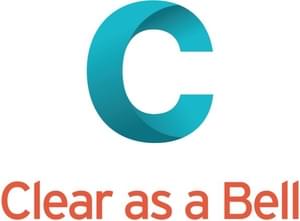Trustworthy information is not free
The second in my short series on my experience of being part of an in-house research team. Having established last time that our independence has value, however uncomfortable, this is about monetary value. It all started with a garden terrace.
Shock, horror – good research doesn’t come free!! Mind you, bad research doesn’t come free either and costs you a whole lot more in other ways if someone then makes major decisions based on dodgy findings.
How can in-house teams advise their organisations on value for money research?
“Surely all you have to do is google it” “But, we can just put out an online survey” “My department doesn’t have any budget for research but this is a really crucial project”... Any of these sound all too familiar?
How much did you say?!!!
I recently got a quote from a builder for a new garden terrace and veranda. We discussed at length what the final plan would look like, the ideal materials to use, the perfect finish etc. I got the quote a few days later – ££££ ahem, what!!?
He came over again and we whittled away at the detail, things I would do myself, size of the project, materials we could change, finishes that would wait for another day. New quote – still expensive but I’d get what I wanted: a convenient place outdoors that is flat and waterproof for socialising with friends and family.
So, from builders we make the quite obvious leap to in-house research (oh yes!).
While I’m certainly not advocating a bottomless pot of money for research, I do say that first properly working out your research question and then planning the ideal way to answer it is the best starting point. Just like my builder and I could visualise the perfect terrace and veranda, sipping a glass or two to celebrate a job well done we, the research commissioner and I, can visualise the perfect research project delivering answers to all the questions. Let’s work out what that would involve and then look at feasibility.
Clarify the question - I mean really clarify
First your research question: my building project key elements were clear “convenient, outdoors, flat, waterproof, socialising”. What are the key elements of the research commissioner’s research question? Take the example of a study on service delivery – the question might be about whether the current model is the right one. What would you want to know? The who, what, where, why, how of need, current service evaluation, comparator/competitor services, funders, service providers, social context, etc. Quite a programme and a lot of different data types, with each element needing to answer its own set of questions.
In your ideal, and fully costed, research proposal you might plan to buy in data sets, use external consultants, interview experts, survey service users or use any number of data collection and analysis techniques.
Then you sit down with your research commissioner, who probably does need to sit down once they’ve see the bottom line, and work out what is feasible. Googling it? Dodgy free, data. An online survey? A survey may a) not be the best or cheapest way to gather data depending on who you need to speak to and b) needs proper design and then analysis for the findings which takes up your own resources or needs to be outsourced and c) our survey system does cost money. And frankly if a project is crucial then it’s worth spending money on and the in-house team should not be expected to do it all with no budget.
What can you afford?
You can however, agree that the scope could be reduced while still answering the research question. Review the ambition of the fieldwork, use other trained staff for some desktop research and there are plenty of other ways to reduce direct expenditure.
Of course, over time, you learn to do that earlier in the process, especially if you have built a good relationship with your research commissioner.
Indirect expenditure strangely often gets overlooked. Never forget that the in-house team’s time is a precious resource to be used to best effect. For example our team has the only market research analyst in the House of Commons – so she is in high demand! We have to outsource sometimes.
The in-house team can provide incredible value for money by making sure that the right research is done in the right way by the right people. We can use that independence and objectivity we discussed in my last article, to follow up with teams and start to measure the impact of any changes made.
Trusted information underpins better decisions
This is the way your team comes to be a trusted service – building relationships with your research commissioners and then following up with practical, pragmatic monitoring, reporting findings to the organisation generally to encourage learning. Then people will begin to see in-house research as a solid investment rather than as a sunk cost.
